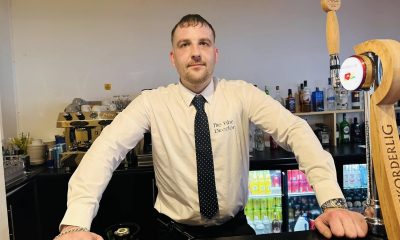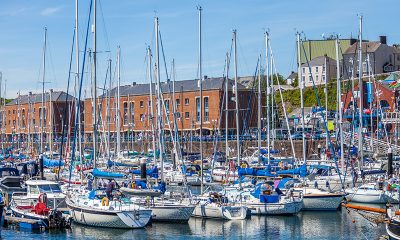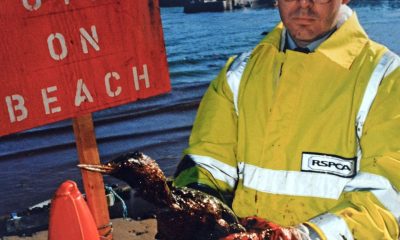News
Councillors clueless on social care business plan

“THE DIRECTOR of Social Services and Chief Executive are aware of it.”
That was the cryptic response of Pembrokeshire’s Cabinet Member for Finance Bob Kilmister when asked about the ‘business case’ the local health board has presented to the Welsh Government for the reorganisation of social care across the Health Board area.
The scheme, to merge some of the adult social care functions provided by local councils with the elderly medical care provided by the Board, is a cornerstone of the Board’s plans for the future of healthcare in west Wales and is supposed to be an example of partnership working.
Bob Kilmister wryly observed: “Whatever the plan is, the Welsh Government are reported to be in favour of it.”
There is considerable scepticism about the Board’s track record of financial mismanagement. Pembrokeshire County Council’s Director of Resources, Jon Haswell, expressed vigorous agreement with the proposition that trusting part of the Council’s already tight budget to the care of an organisation running in permanent deficit caused concern.
As the scheme is supposed to be an example of partnership working, it is equally peculiar that members of the political executive charged with implementing and carrying the can for it have been kept in the dark.
When the Board’s plans for social services were discussed at Carmarthenshire County Council in October, there was almost unanimous approval that the management of the social care scheme should be directly accountable and a significant number of councillors in favour of it being run as a discrete service with its own management structure.
At that point, Carmarthenshire’s Director of Social Services, Jake Morgan, was careful to describe the plans as the Health Board’s and suggested he was none the wiser about how social care would be structured other than through ‘partnership working’.
Only a few weeks later, a business case has gone to the Welsh Government.
There have been no briefings for elected members, no scrutiny before the business case’s submission, and what is supposed to be a partnership looks rather like the Board and the Welsh Government bouncing local authorities into a scheme into which their input has been, at best, limited.
On Monday, we asked Hywel Dda UHB about its social care plan.
We explained that we had noted the health board’s plans for greater cooperation with the social services departments of the 3 local authorities in the region. We also explained we knew that a business case to that end has been submitted to the Welsh Government for consideration.
We asked the Board to confirm that, in accordance with the principles of partnership working, all of the elected members of each local authority concerned had sight of the whole business case before its submission to the Welsh Government and that each local authority approved its content by reference to a meeting of all councillors.
We also asked what the plans’ impact would be on each local authority’s future social care budgets, what the proposed management structure was and what level of accountability it would have.
Our inquiries remained unanswered.
Not from any of the three local authorities to whom we posed that question and not from the Health Board.
The only answers we got were at the budget briefing for Pembrokeshire County Council when both the Director of Resources and Cabinet Member for Finance were refreshingly direct about their personal view of the prospects for partnership working with the Board.
Against the backdrop of the Board’s diverting interpretation of the word ‘partnership’, two of the three contenders to replace Carwyn Jones as Labour leader in Wales, Eluned Morgan and Vaughan Gething, have separately endorsed a wholesale reorganisation of social care into a National Care Service.
Such a service would be implemented and led by local government, in partnership with local health boards and third sector organisations they may wish to commission. The Welsh Government would oversee a national rollout of the provision and ensure that standards are met. The scheme would be funded by a social care levy and from savings to the NHS budget.
The fact that Councils would lead a National Care Service makes it doubly surprising that those covering West Wales have had such minimal input into the creation of a new care system there.
Charity
Christmas jumper day fundraiser helps support lifesaving volunteer service

A WEST WALES charity that delivers blood, medication and urgent medical supplies for the NHS has received a welcome funding boost thanks to the generosity of local driving examiners and instructors.
Blood Bikes Wales has thanked the West Wales Driving Examiners for raising money through a festive Christmas Jumper Day, with additional contributions from Approved Driving Instructors and staff from the Driver and Vehicle Standards Agency.
The fundraising effort has resulted in a sizeable donation that the charity says will go directly towards keeping its volunteer-run service on the road.
Blood Bikes Wales provides a free out-of-hours courier service for the NHS, transporting blood, samples, donor breast milk, medication and other urgent items between hospitals and healthcare sites. The service helps reduce costs for the health service while ensuring patients receive time-critical treatment as quickly as possible.
Mark, the charity’s West Area Representative, accepted the cheque on behalf of the organisation at a small presentation outside the local driving test centre.
A spokesperson for Blood Bikes Wales said the support would “go a long way in helping us continue supporting NHS services and patients across the region”.
They added: “We’re truly grateful for the generosity and community spirit shown by the West Wales Driving Examiners, local ADIs and DVSA staff. Every donation helps keep our bikes fuelled, maintained and ready to respond when the NHS calls.”
The group added a light-hearted note about the day, joking that while there may not have been an official “pass mark” for festive knitwear, the examiners would certainly have earned top marks.
Blood Bikes Wales is powered entirely by volunteers, who give up their time to carry out thousands of deliveries each year, often late at night and in poor weather conditions.
Anyone interested in supporting the charity, either through donations or volunteering, can find more information on the Blood Bikes Wales website.
News
Protest at Senedd as climate groups clash on how Wales should go green
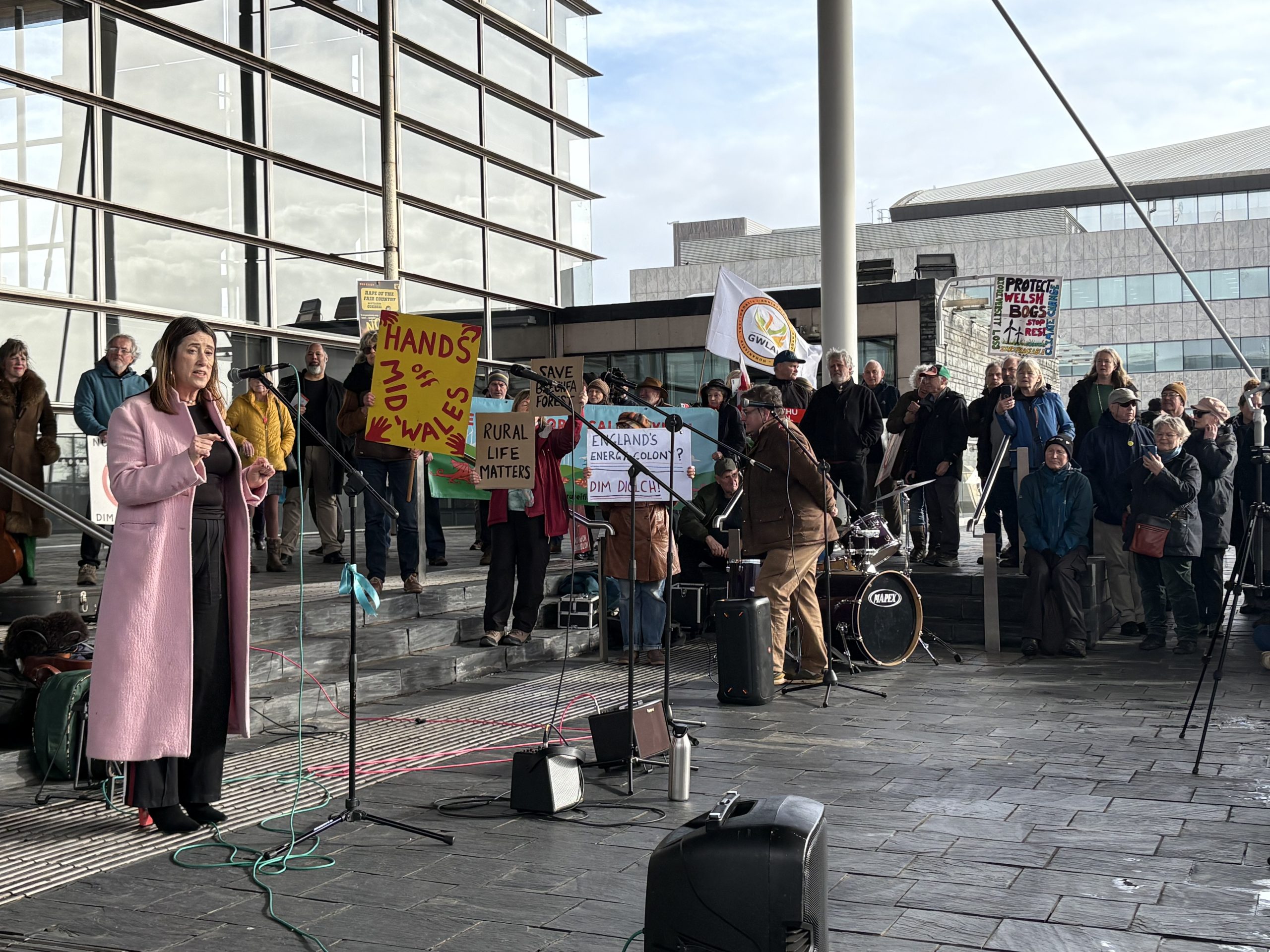
Campaigners demand landscape protection and underground cables while environmentalists warn Wales cannot slow the clean energy transition
A PROTEST took place outside Senedd Cymru on Wednesday (Feb 11) as campaigners gathered to oppose large-scale wind farms, energy parks and new overhead pylons across rural Wales.
Residents from mid and west Wales, including farming families, countryside groups and community activists, assembled on the steps of the Welsh Parliament holding banners reading “Hands off Mid Wales”, “Rural life matters” and “Protect Welsh bogs”.

Many said they support renewable energy in principle but fear that current proposals would industrialise rural landscapes while delivering little benefit to local people.
Among those addressing the crowd was Jane Dodds, leader of the Welsh Liberal Democrats, who renewed calls for ministers to require electricity cables to be placed underground rather than carried on new lines of pylons.
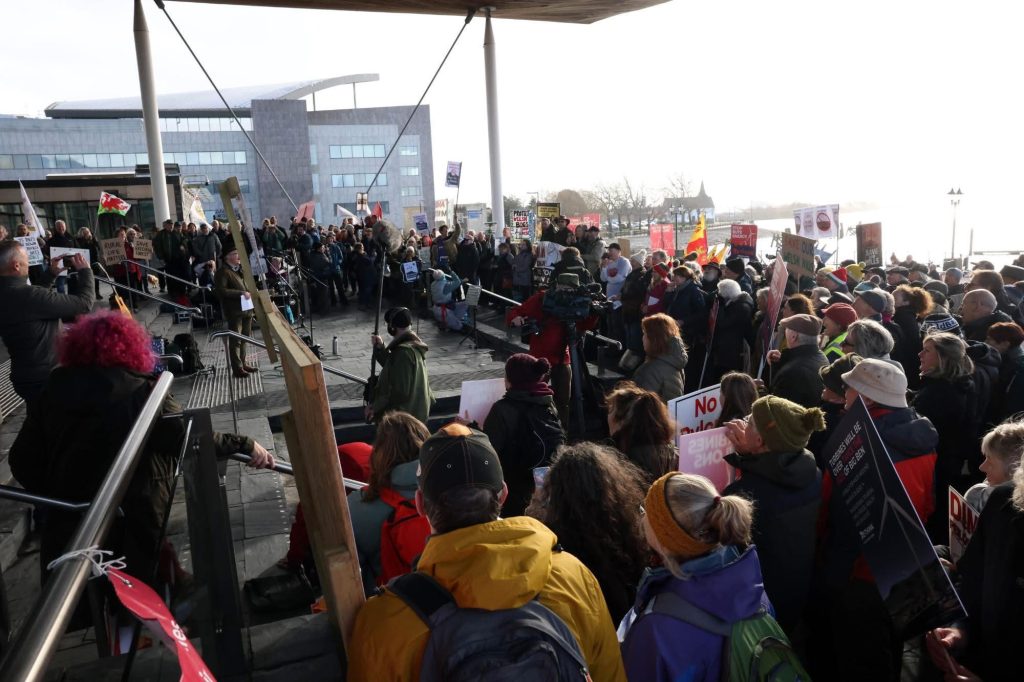
Calls for underground cables
Dodds said Wales must not lose its countryside in the rush to decarbonise.
“We cannot afford to lose our countryside,” she told protesters. “Once these wind turbines and pylons are in place, the impact on our landscapes will be long lasting and, in many cases, irreversible.
“Local people feel their concerns are being overlooked while large developers push ahead with major projects. That is not how the transition to green energy should work.”
She pointed to a recent budget agreement which secured £1 million for a Visual Impact Innovation Fund to trial undergrounding technologies and explore alternatives to overhead infrastructure in sensitive areas.
“We need a balanced approach,” she said. “We must move away from fossil fuels, but we must also protect the beauty and character of rural Wales.”
Why people are protesting
Speakers and attendees raised concerns about:
• visual impact of turbines and pylons on open countryside
• effects on peatland, wildlife and habitats
• loss of productive farmland
• heavy construction traffic through small villages
• profits flowing to distant shareholders rather than host communities
Several campaigners argued that decisions feel “done to” communities rather than shaped with them, with limited consultation and little long-term return.
Some called for smaller-scale, locally owned schemes instead of what they described as “mega-projects”.
Climate groups defend renewables
In response to the protest, Climate Cymru said Wales must not step back from wind power and other renewables, warning that continued reliance on fossil fuels would worsen both the climate and cost-of-living crises.
Stan Townsend, spokesperson for the group, said: “Rising energy bills and energy insecurity are already affecting families, farmers and businesses across the country.
“Turning away from renewables would mean deeper dependence on volatile, expensive, polluting fossil fuels. We need clean, home-grown energy to protect people and the planet.”
He said Wales has some of the best wind resources in Europe and a major opportunity to cut bills, create skilled jobs and strengthen energy security.
Community ownership ‘key to support’
Community Energy Wales said many objections could be eased if local people had ownership or a financial stake in developments.
Leanne Wood, co-executive director, said: “If communities can part own developments, many of the objections to new wind turbines can be overcome. Ownership brings control.
“This would lock the profits into those communities and potentially reduce bills.”
The organisation is working to enable locally generated renewable electricity to be sold directly to local consumers so that wealth stays within towns and villages.
A wider debate
The demonstration highlights a growing divide over how Wales meets its net zero targets.
While environmental groups stress the urgent need to expand renewable energy quickly, rural campaigners say the Wales-wide push must not come at the expense of landscapes, farming and community consent.
Dodds urged the Welsh Government to strengthen planning, consultation and benefit schemes so that communities see clear advantages.
For many at the Senedd, the message was clear: renewable energy is necessary — but only if local people share the control, the profits and the decisions.
News
West Wales Together Alliance launch in Haverfordwest

A NEW alliance bringing together community groups, trade unions, faith leaders and campaigners from across west Wales is set to launch in Haverfordwest next month.
The West Wales branch of the Together Alliance will officially begin with a public meeting at 7:00pm on Wednesday (Feb 18) at Haverfordwest Mosque, Cherry Grove.
Organisers say the event will unite local politicians, farmers, artists, anti-racist organisations and faith groups in response to what they describe as growing “voices of division” in national and local politics.
In a statement, the alliance said: “Those who preach division are becoming more confident. Their false promises seize on very real economic problems and scapegoat migrants, Muslims and refugees.
“But we can change things together. The voices of unity can grow stronger. Strength lies in solidarity and working together for hope, not despair.”
The group aims to build cooperation between communities and challenge racism and extremism through grassroots organising. It says hundreds of organisations and individuals nationwide have already signed up.
The Haverfordwest launch forms part of a wider mobilisation ahead of a major national demonstration planned for London on March 28.
Several high-profile supporters have also backed the campaign, including comedian and campaigner Lenny Henry, who said: “We stand for love over hate, hope over fear and unity over division. We’re coming together against racism.”
Singer Paloma Faith added: “There is no world that I want to live in where discrimination is acceptable for anything.”
Organisers say anyone interested in promoting inclusion, equality and community solidarity is welcome to attend.

-

 Health7 days ago
Health7 days agoHealth board targets rise in steroid and gym drug use across west Wales
-

 Health16 hours ago
Health16 hours agoHealth Board to decide future of nine key services at two-day meeting
-

 Crime7 days ago
Crime7 days agoTeacher injured and teenager arrested for attempted murder at Milford Haven School
-

 Business3 days ago
Business3 days agoComputer Solutions Wales under fire from customers
-

 Business6 days ago
Business6 days agoSix-figure negligence victory leaves retired builder trapped in divorce limbo
-
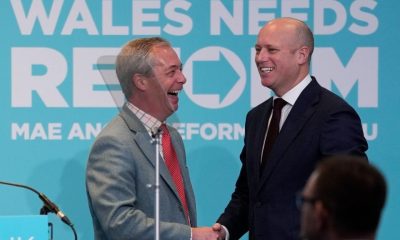
 News7 days ago
News7 days agoReform appoints Dan Thomas to lead party in Wales
-

 Sport7 days ago
Sport7 days agoWales name squad for Six Nations opener against England
-

 News7 days ago
News7 days agoAnother Senedd member defects to Reform as Lib Dem MP hits out











